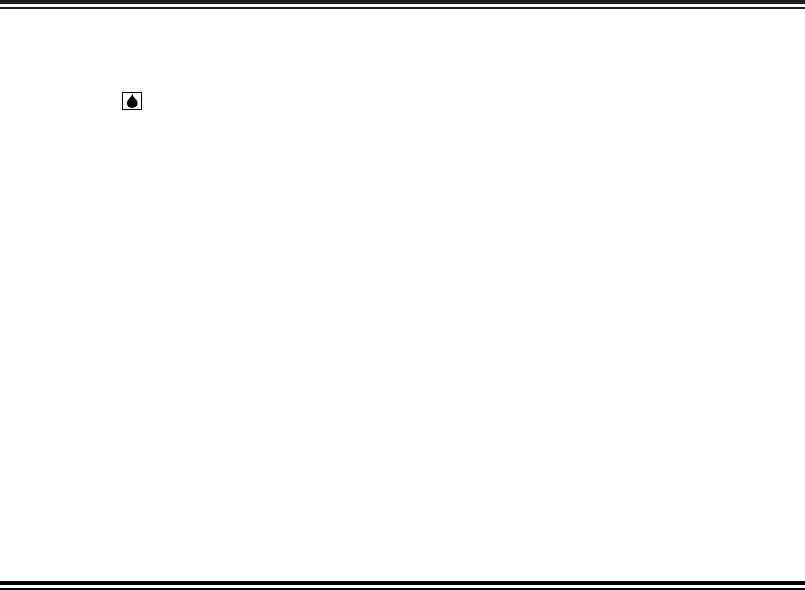
60
Condensation
How to tell when condensation has formed
inside and what to do about it
If, after the camera recorder’s power has been
turned on, the condensation display symbol
flashes, it means that condensation has formed
inside the camera recorder. If this happens, the
power will be automatically turned off after
several seconds.
Take the following action.
1Remove the cassette.
No other functions will work. Depending on
the degree of condensation, it may not be
possible to eject the cassette, either. In this
case, wait two or three hours, and then try
ejecting the cassette.
2Wait two or three hours with the cassette
holder open.
The wait time differs depending on the
degree of condensation and the ambient
temperature.
3After two or three hours have elapsed,
turn on the power, and check whether the
condensation display has gone off.
Even if the condensation display has gone
off, wait another hour to be on the safe side
before attempting to operate the camera
recorder.
Bear in mind that condensation may be
forming before the condensation display
comes on.
OCondensation forms gradually so that the
condensation display may not appear for the
first 10 to 15 minutes after it has started to
form inside.
OIn very cold climates, condensation may
freeze and turn into frost. In this case, it will
take two or three hours for the frost to melt
and become condensation again.
Video heads
If the video heads are dirty, mosaic-type noise
may occur in some areas or the whole image
may turn blue when playing back a tape.
If the dirt accumulates, the recording capability
will deteriorate, and in the end it will not be
possible to record.
Causes of dirty heads
OHigh concentrations of dust in the
atmosphere
OEnvironments which are very hot and very
humid
OTape damage
OProlonged operation
Using the cleaning cassette tape (accessory)
1Insert the cleaning tape in the camera
recorder, and set the POWER switch to
ON.
2Press the CAMERA/VCR button, and
check that the VCR lamp has lighted.
3Tilt the OPERATION lever in the 1
direction, and allow 10 seconds to pass
before tilting it in the $ direction.
(Do not rewind the tape at this point.)
4Remove the cleaning tape, proceed with a
test recording and playback using another
tape, and check the images.
5If the images are not clear, repeat steps 1
to 4.
(Do not run the cleaning tape continuously
more than 4 times.)
ODo not rewind the cleaning tape at any
interim point. At the end of the tape, rewind
it, and use it again from the start.
OIf the heads are still dirty even after cleaning,
it may mean that the tape itself has
deteriorated so stop using it immediately.
OOveruse of the cleaning tape causes head
wear. If the heads are worn, clear pictures
will not be played back even immediately
after the heads have been cleaned.
OIf the cleanliness of the heads is not improved
by the cleaning tape, the camera recorder
must be cleaned and/or repaired by your local
dealer. Consult with your dealer.
Regular inspections
In order to view clean and clear images, it is
recommended that the video heads and other
worn parts be replaced after they have been
used for about 1,000 hours (This period will
vary significantly depending on the temperature,
humidity, dust and other conditions in the
operating environment.)


















